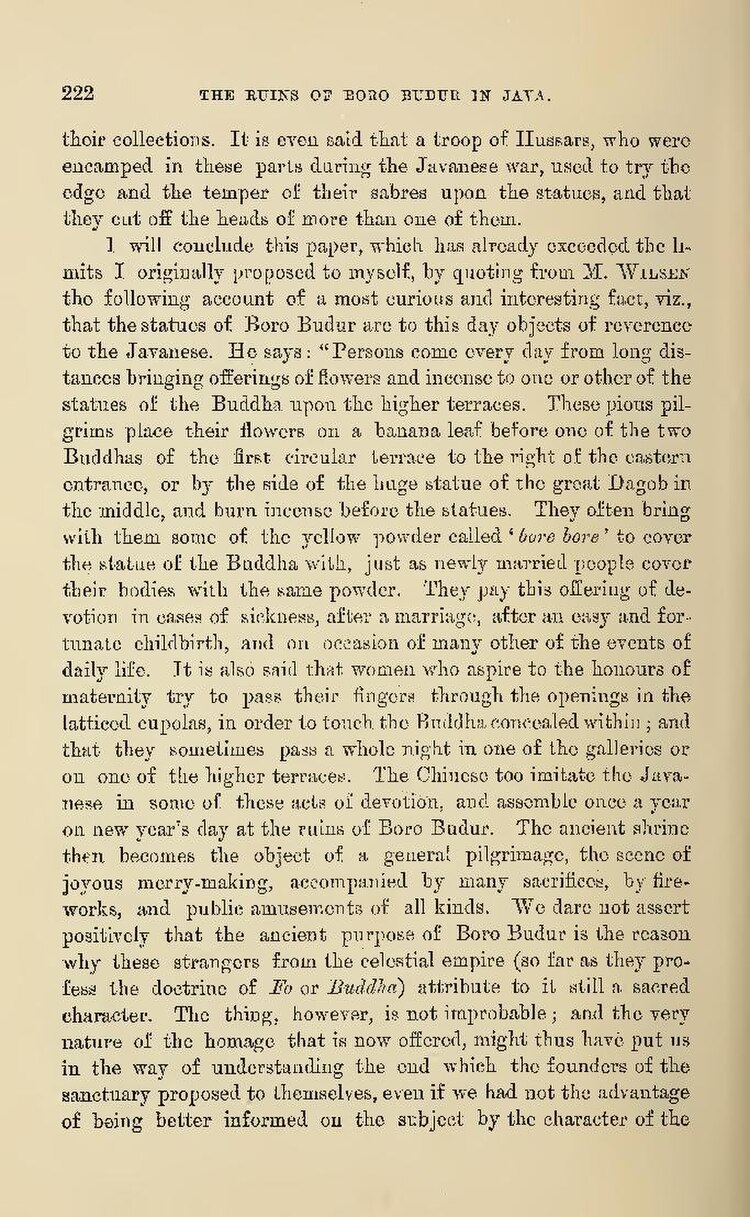their collections. It is even said that a troop of IIussars, who were encamped in these parts during the Javanese war, used to try the edge and the temper of their sabres upon the statues, and that they cut off the heads of more than one of them.
I will conclude this paper, which has already exceeded the limits I originally proposed to myself, by quoting from M. WILSEN the following account of a most curious and interesting fact, viz., that the statues of Boro Budur are to this day objects of reverence to the Javanese. He says: "Persons come every day from long distances bringing offerings of flowers and incense to one or other of the statues of the Buddha upon the higher terraces. These pious pilgrims place their flowers on a banana leaf before one of the two Buddhas of the first circular terrace to the right of the eastern entrance, or by the side of the huge statue of the great Dagob in the middle, and burn incense before the statues. They often bring with them some of the yellow powder called ‘bore bore’ to cover the statue of the Buddha with, just as newly married people cover their bodies with the same powder. They pay this offering of devotion in cases of sickness, after a marriage, after an easy and fortunate childbirth, and on occasion of many other of the events of daily life. It is also said that women who aspire to the honours of maternity try to pass their fingers through the openings in the latticed cupolas, in order to touch the Buddha concealed within; and that they sometimes pass a whole night in one of the galleries or on one of the higher terraces. The Chinese too imitate the Javanese in some of these acts of devotion, and assemble once a year on new year's day at the ruins of Boro Budur. The ancient shrine then becomes the object of a general pilgrimage, the scene of joyous merry-making, accompanied by many sacrifices, by fireworks, and public amusements of all kinds. We dare not assert positively that the ancient purpose of Boro Budur is the reason why these strangers from the celestial empire (so far as they profess the doctrine of Fo or Buddha) attribute to it still a sacred character. The thing, however, is not improbable; and the very nature of the homage that is now offered, might thus have put us in the way of understanding the ond which the founders of the sanctuary proposed to themselves, even if we had not the advantage of being better informed on the subject by the character of the
